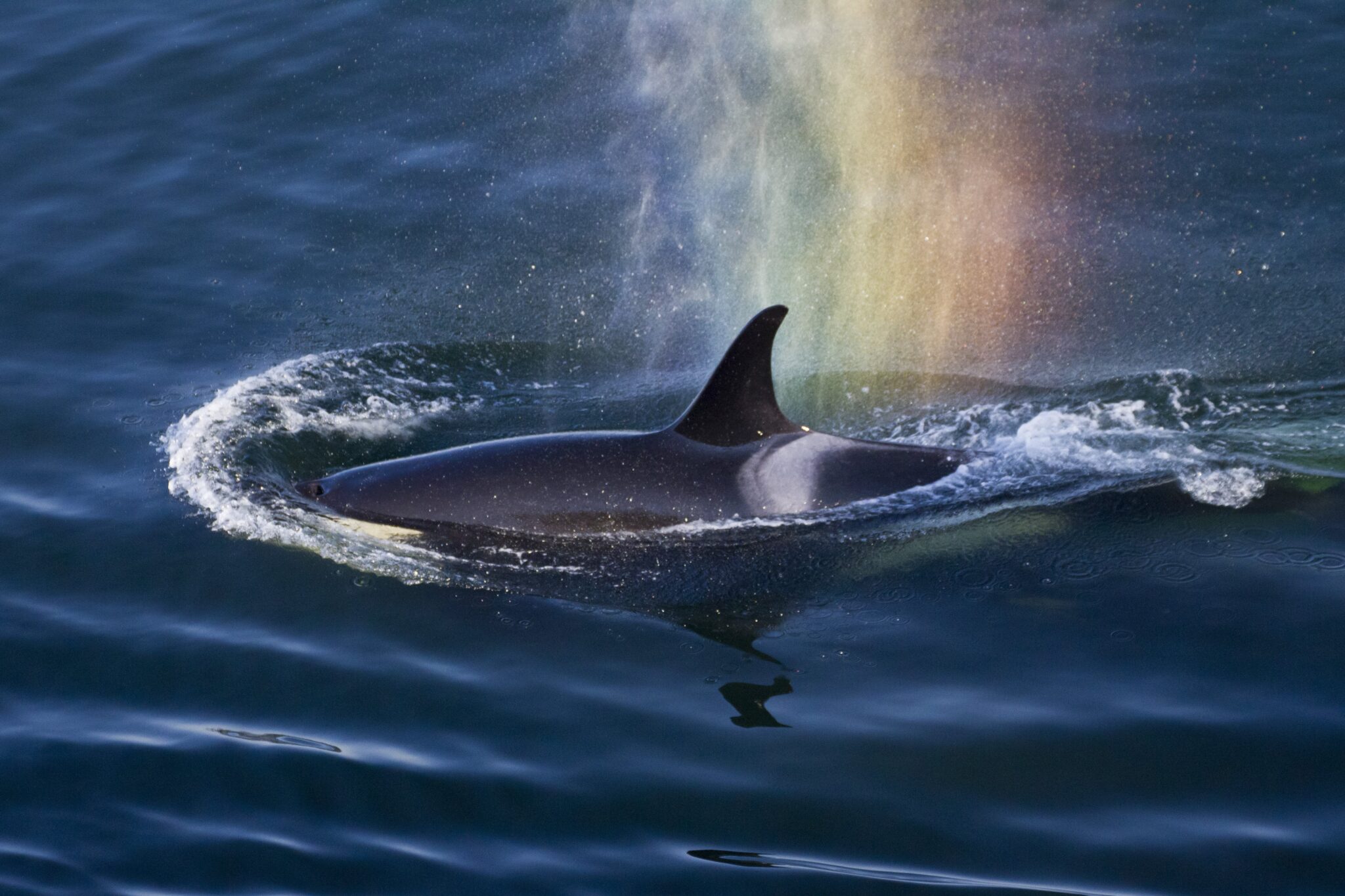
Over the past few weeks, we’ve made incredible strides and progress on a variety of our science, education, and advocacy initiatives that are being covered and celebrated by local and international news media.
With the election looming and all too frequent doom-inspiring news stories dominating headlines, we wanted to take this opportunity to share some good news for a change.
RECOVERING SOUTHERN RESIDENT ORCAS & WILD CHINOOK
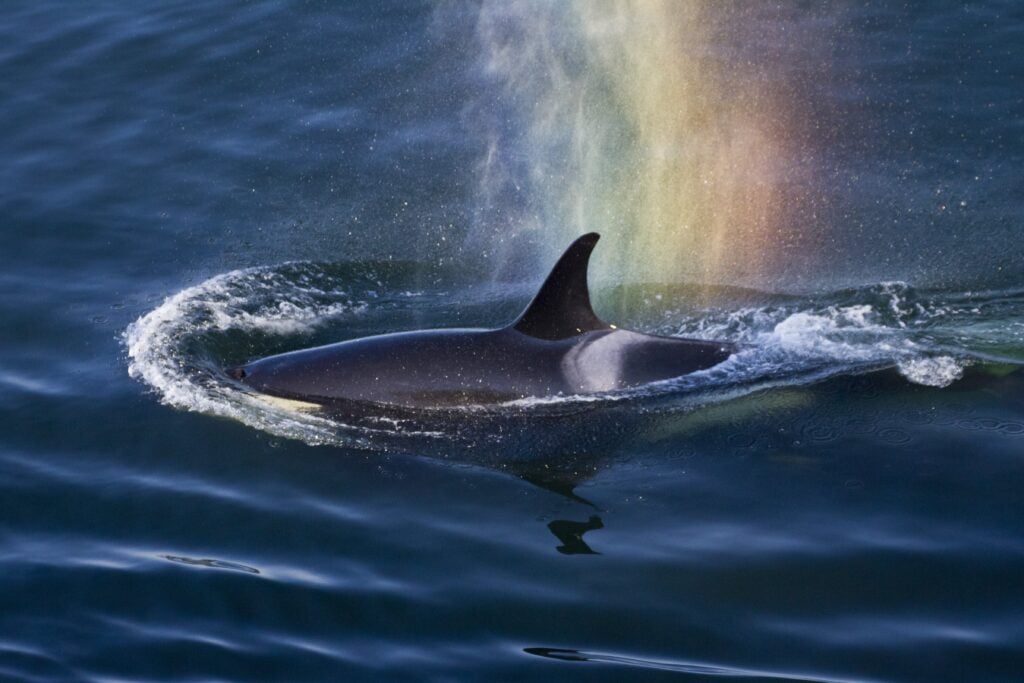
LAWSUIT SEEKS TO BLOCK SOUTHEAST ALASKA CHINOOK TROLL FISHING TO INCREASE SALMON FOR ORCAS
By Christopher Dunagan, Puget Sound Institute Blog | November 4, 2022
Friday’s article by the Puget Sound Institute Blog, does an excellent job digging into the arguments made earlier this week in Wild Fish Conservancy’s major lawsuit against NOAA Fisheries for authorizing harvest in Southeast Alaska at levels that is pushing endangered Southern Resident killer whales and wild Chinook closer to extinction.
As we previously shared, a federal Court issued a landmark decision in August overwhelmingly agreeing with Wild Fish Conservancy’s claims that NOAA Fisheries violated U.S environmental law when they attempted to use speculative and uncertain mitigation measures to offset known and ongoing harm to both iconic and federally protected species.
With the merits of the case decided, Seattle’s federal Court held oral argument this week in order to determine what the relief and solutions are to addressing this illegal harvest plan and ensuring these threatened and endangered species are being adequately protected.
The article below digs into the arguments presented this week by both sides as the Court works to determine how to bring the fishery into compliance and also provides an excellent overview of the underlying issues that led to this lawsuit and the Court’s earlier decision.
ADVOCATING FOR SCIENCE-BASED & EQUITABLE FISH AND WILDLIFE CONSERVATION
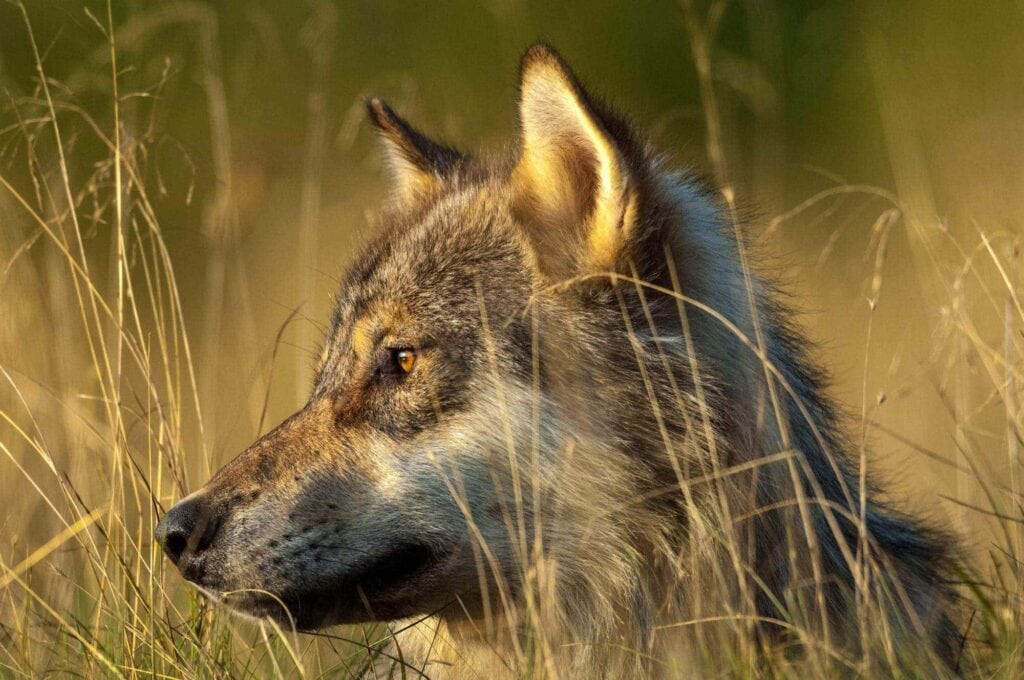
SAMANTHA BRUEGGER: WASHINGTON WILDLIFE MANAGEMENT MUST EVOLVE TO MEET ITS RESPONSIBILITIES TO THE PEOPLE
Opinion Piece by Samantha Bruegger, The Spokesman-Review | November 5, 2022
Yesterday, a guest opinion piece was published in The Spokesman-Review by the Executive Director of Washington Wildlife First on behalf of ten conservation nonprofits, including Wild Fish Conservancy. The op-ed describes a new effort by a broader group of conservation organizations working together to advocate for changes to how fish and wildlife are managed in Washington state.
Together, these organizations vary in size and scope, areas of focus and expertise, and philosophy, but share the common goal of reforming the Fish and Wildlife Department to better prioritize conservation over extraction, utilize best available science when setting policy and making decisions, recognize the intrinsic value of all species and their ecosystems, and managing fish and wildlife for all members of our state, including future generations.
Read the opinion piece to learn more about this effort, the need for reform, and how the upcoming decision by Governor Inslee over the appointment of new Fish and Wildlife Commissioners is so critical to helping achieve these goals.
PROMOTING RESPONSIBLE & SUSTAINABLE FISHERIES
INNOVATIVE COMMERCIAL FISHING TECHNIQUE CAN AID WILD SALMON RECOVERY
The Journal of the San Juans | October 16, 2022
Last month, Wild Fish Conservancy published a third peer-reviewed study on our research of commercial fish traps (or pound nets) in the international journal of Fisheries Research providing the most clear-cut and irrefutable evidence to date that this alternative commercial fishing technique can nearly eliminate unintended mortality of threatened and endangered salmon and steelhead during harvest, allowing for sustainable and resilient commercial fisheries.
The new publication builds on and validates the results of Wild Fish Conservancy’s previous published studies evaluating passively operated fish traps on the Columbia River that have consistently shown survival near 100% for adult fall-run Chinook salmon, coho salmon, sockeye salmon, and summer-run steelhead released as bycatch. These results are truly groundbreaking as no other commercial salmon fishing gear that has been studied has ever demonstrated such promising results.
Read the article to learn more about this exciting new publication and why the results are so important for the recovery of the northwest’s wild salmon, steelhead, and orcas, and for the future of commercial fishing communities coastwide.
GLOBAL FIGHT TO END COMMERCIAL NET PEN AQUACULTURE
TASMANIAN ENVIRONMENTAL GROUPS FURIOUS OVER $1.1 BILLION TASSAL TAKEOVER BY COOKE AQUACULTURE
By Frank Chung, News.com/au (Australian Media) | November 3, 2022
In addition to our efforts to protect Puget Sound from commercial salmon farms in Washington state, Wild Fish Conservancy is a proud member of the Global Salmon Farming Resistance, an international coalition of groups working around the world to advocate for an end to open water net pen aquaculture over concerns for the harmful impacts on local ecosystems and communities.
Similar to Cooke Aquaculture’s takeover of Washington state’s net pen industry in 2016, the company recently moved to acquire the Tasmanian salmon producer Tassal, and is also working to take over and expand net pen operations in Iceland, Scotland, and other regions around the world.
Even as Washington state moves ever closer toward removing Cooke and this industry from Puget Sound, WFC is now working to support our colleagues in Tasmania and around the world to help raise awareness of Cooke’s history of environmental harm and violations in regions like Puget Sound.
Read the article that went live this week in Australia to learn more about this global effort to protect Tasmanian public waters from this dangerous industry.

On November 10th, every single net pen lease in Puget Sound will expire so we only have 4 more days to call on Washington’s Commissioner of Public Lands Hilary Franz to end commercial salmon farms in Puget Sound. Learn more or click below to take action now.
A SUSATINABLE APPROACH TO RESTORING WILD FISH HABITAT
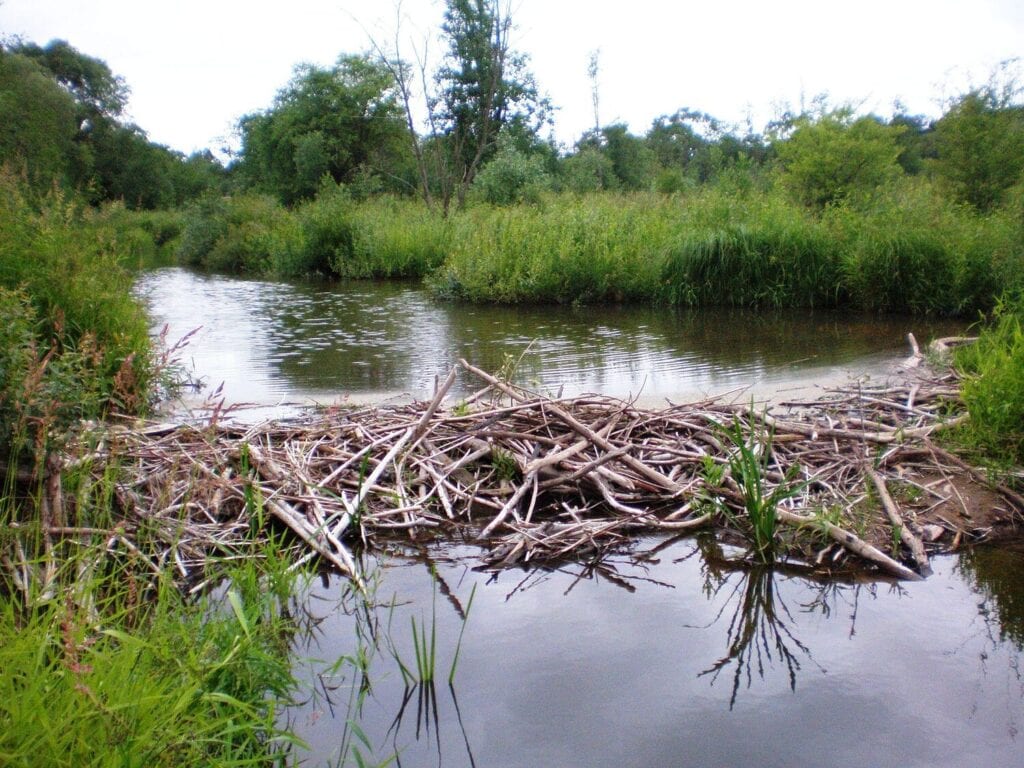
ECOLOGY GRANTS $35 MILLION TO STREAMFLOW PROJECTS: MONEY GOES TO PROJECTS ACROSS WASHINGTON, ONE IN GRAYS HARBOR
By Clayton Franke, The Daily World | October 11, 2022
We’re excited to share a recent article highlighting a new salmon habitat restoration grant Wild Fish Conservancy recently received to improve streamflow in the Chehalis Basin using beaver dam analogs.
Beaver dam analogs or BDAs are simple artificial structures designed to mimic the form and function of natural beaver dams to increase the quality and quantity of these important wild fish habitats to benefit streamflow, buffer native fishes and other aquatic species from the impacts of climate change, and ultimately, to encourage more beavers to return to the Chehalis Basin.
Read the article below to learn more about the funding making this work possible, the importance of this work, and how this new project builds on other ongoing efforts by WFC in the Chehalis Basin.
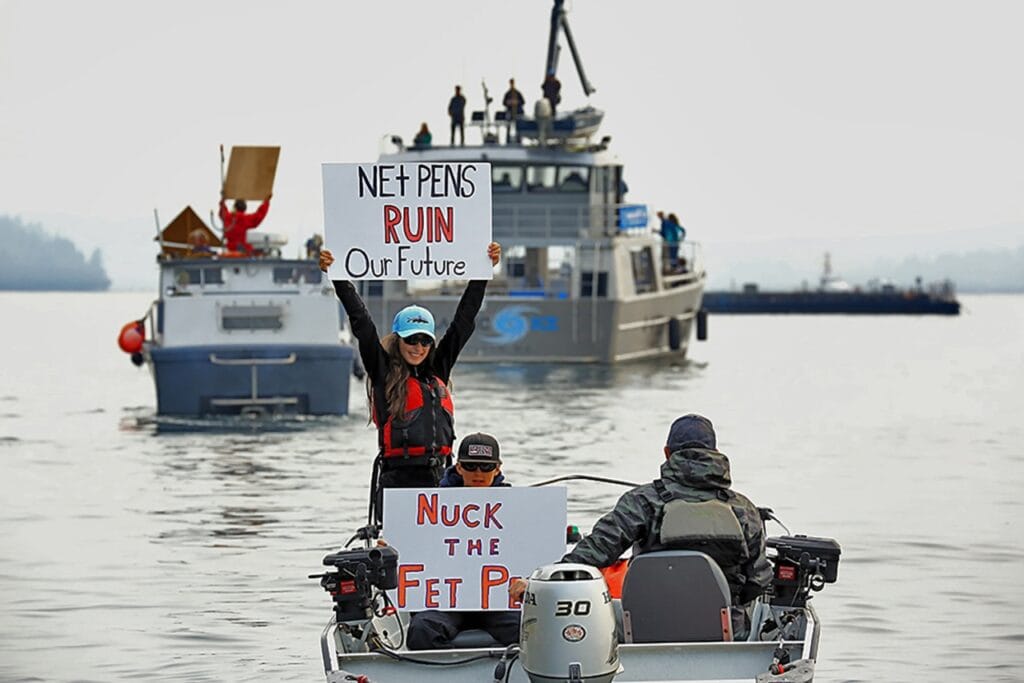
THIS GOOD NEWS IS ONLY POSSIBLE BECAUSE OF YOU!
If you are inspired by the progress and updates shared today, please consider donating to continue driving forward the science, education, and advocacy initiatives behind these exciting announcements. Thank you for all you make possible!
Join our mailing list to recieve important updates on our work, the latest wild fish news, & opportunities to take action to support wild fish.
This site is protected by reCAPTCHA and the Google Privacy Policy and Terms of Service apply.
Wild Fish Conservancy is recognized as a 501(c)3 non-profit by the IRS